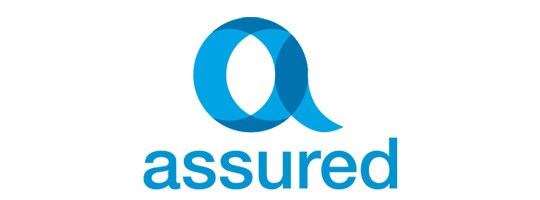Yes it’s almost that time of year again that most of us tend to either love or hate… tax time! The saying still holds true, ‘nothing’s as certain as death and taxes’, so whether you like it or not getting ready for tax time is something all of us need to prepare for.
Tips for End of Financial Year!
Yes it’s almost that time of year again that most of us tend to either love or hate… tax time! The saying still holds true, ‘nothing’s as certain as death and taxes’, so whether you like it or not getting ready for tax time is something all of us need to prepare for.
In this months money saving tips I’d like to share with you some tips for the end of financial year, and who better to offer advice in this area than the Institute of Chartered Accountants. SuperLiving spoke with Yassar El-Ansary to find out the top tax tips.
Are you expecting a large tax return? Or concerned you might owe a bundle to the tax man? Where are the greatest tax savings to be found this financial year? Keep the cash in your pocket and get the numbers stacked in your favour with SuperLiving’s top tax tips.
The first thing that usually comes to mind at tax time for many hard-working taxpayers is whether they will receive money back from the taxman this year or if they will have to hand over even more hard-earned cash.
SuperLiving spoke to Institute of Chartered Accountants in Australia tax counsel Yasser El-Ansary to find out his top tips for maximising your tax return this year.
Tax Tip Number One: If you have children of school age, claim your education gift from the government.
The government introduced the education tax refund from July 1, 2008, to help families with school-age children meet the costs of schooling.
For every child of primary school age, the refund is $750; for children of high school age, the refund is $1500.
The refund is only available in relation to certain types of expenditure such as laptops and internet connections, educational software and textbooks, so check that the costs qualify before making your claim.
Tax Tip Number Two: Crystallise capital losses if they are available.
With the worldwide slump in equity markets over the past couple of years, it’s still worthwhile to consider whether or not you might be sitting on unrealised losses that are unlikely to reverse anytime soon.
Crystallising unrealised losses into real losses can be achieved through selling down the relevant shareholding and buying back other stocks (that are more likely to generate better returns) with the proceeds received from the sale.
The benefit of this strategy is that it allows the taxpayer to offset the capital gains tax losses against other capital gains that may have been derived during the year, say from the sale of an investment property.
Care should be exercised here though, because the Australian Taxation Office has recently issued a warning to taxpayers about “wash sales”.
This occurs where stocks are sold and immediately bought back on the same day. Check the ATO’s alert and make sure you steer clear of breaching the ATO’s boundaries, otherwise significant tax penalties could be imposed.
Tax Tip Number Three: Prepay interest while the going is still good.
Normally, prepaying 12 months worth of interest in advance doesn’t achieve much if the taxpayer’s income is constant from year to year. It does, however, work quite effectively when the taxpayer’s income is variable, and in particular, if their income in the current year is expected to be higher than their income in subsequent years.
But, given that our current cash rates are still relatively low by historical standards – and they are set to rise over coming months – it might be a good idea to consider whether prepaying 12 months worth of interest is possible from a cash flow perspective.
If nothing else, at least it provides the taxpayer with certainty about their interest rate position for the next 12 months, and could shield them from further rate rises.
Tax Tip Number Four: Use a registered tax agent to legitimately delay the payment of tax.
As someone once said, “a dollar paid tomorrow is a dollar saved today”. This logic holds true when it comes to tax.
If someone told you it’s possible to get away with not having to pay a tax liability on October 31, and instead have access to what is in effect an interest-free loan from the tax office for around six months, would you do it? Of course you would.
If a taxpayer uses a registered tax agent they can generally defer the lodgement of their tax return and payment of any associated tax liability until around May, 11 months after the end of the tax year. This is a significant benefit for those who find themselves in a tax payable position.
Incidentally, the reverse of this logic applies when the tax office owes you a refund. In that situation, you’re much better off getting your return in quickly to make sure you get the cash back into your pocket as soon as possible.
Tax Tip Number Five: Keep pouring money into super.
Even though the concessional contribution caps were halved in last year’s federal budget (down to $50,000 per annum for those over 50, and $25,000 per annum for those under 50), diverting income into a concessionally taxed superannuation environment is still a great idea.
Doing this has the added benefit of boosting retirement income.
Reducing Tax Liability
Another way to maximise your tax return this year is to, where possible, defer income until the next financial year and bring forward expenditure into this financial year.
This will help to reduce any tax liability you might be going to incur.
“The logic being, of course, that if you bring forward the expenditure you get the deduction now and if you delay the recognition of income you pay tax at a later point, and paying tax at a later point sometimes brings with it a benefit of paying less tax if the government chooses to reduce the tax rates in the intervening period,” El-Ansary told SuperLiving .
Negatively-Geared Rental Properties
People who own rental properties often do not know that they can claim the building allowance write-off – a 2.5% annual deduction for building costs that was introduced after 1982.
This deduction can be claimed over the effective life of the building, which is around 40 years. It can also be claimed for structural improvements to the property.
People who have not claimed the building allowance write-off previously can claim the deductions of past years in this year’s tax return.
2010-11 Federal Budget
With the release of the budget, it is also important to consider how changes to the tax system will affect your future tax returns.
While most of the changes are not due to come into effect until 2012, you may have to consider bringing forward certain expenses and claims into the next financial year so as not to miss out on getting the full benefit.
El-Ansary said one important change to think about is the standard tax deduction for work-related expenses.
This comes into effect on July 1, 2012, and will affect anyone considering undertaking an education course relevant to their employment, or may be going to incur a significant work-related expense, like attending a major conference.
“It might be worthwhile bringing forward that expenditure as much as possible before July 1, 2012, just to ensure that you get full value for that tax deduction instead of potentially finding that you might be in a position where you’re taking the standard tax deduction and therefore not realising the full benefit of those costs,” he said.
El-Ansary also recommends people over the age of 60 who are currently drawing down a tax-free transition to retirement pension, but still working full time, be on the lookout for any changes in that area over the coming months.
“Potentially, as part of next year’s federal budget, there may be some winding back of the concession because there’s a concern on the government’s part that the rules around the transition to retirement tax-free pension drawdown are too broad and are leaving open certain taxpayers to be able to drawdown tax-free super, while at the same time continuing to work full time,” he said.
Completing your Tax Return
For anyone considering completing their own tax return, El-Ansary recommends “road-testing” the ATO’s E-tax software as it has improved markedly over the past few years.
“It’s a very high-quality product now and for anyone who has the time and inclination to work their way through the tax pack and use the online E-tax software, it is quite a straightforward process as long as you’re aware of the obligations you have around declaring all of your income,” he said.
To download the ATO’s free copy of E-tax, or for more information on the software visit www.ato.gov.au/etax
Source: www.superliving.com.au
Author: Angela Kean
*The tax tips featured in this article were reproduced with permission from the Institute of Chartered Accountants in Australia and Yasser El-Ansary.
Information printed in this article is current from: May 2011

